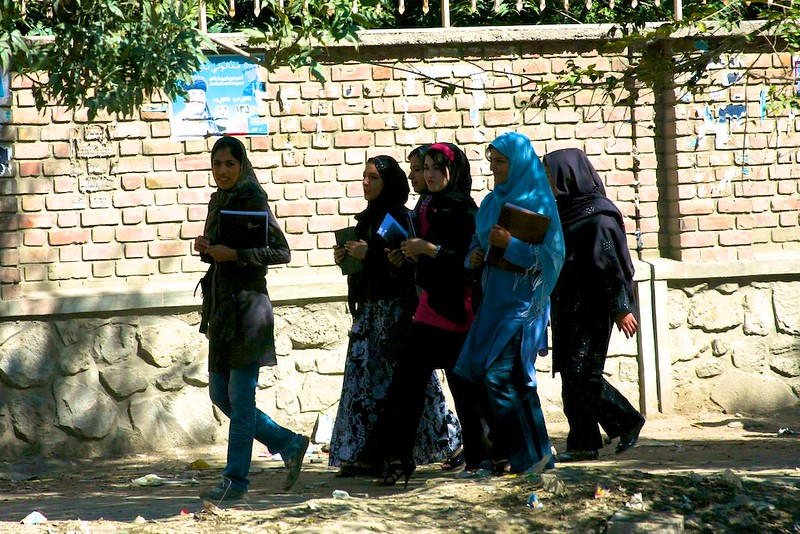Women of Kyrgyz Islam protest
In the Biškek parliament, a female member of parliament denounced the fact that there is no female representation in the religious administration, sparking a lively debate in the country. In the last 20 years, a generation of women with a good religious education has grown up in Kyrgyzstan, who want to be protagonists in the Islamic community and society
Bishkek (AsiaNews) - At the Žogorku Keneš, the Bishkek parliament, MP Dinara Ašimova denounced the fact that there is not even a single woman in the Religious Administration of the Muslims of Kyrgyzstan (DUMK), sparking a great discussion in the country.
The muftis responded that in reality there are women active in the management structure of national Islam, who organize the opening of training centers especially dedicated to women, but there is no official information on the presence of women in the central apparatus of the muftiat.
Parliament mandated the State Commission for Religious Affairs to monitor issues related to the education of women in madrasas, and collaboration in the activities of religious institutions.
According to the Dumk spokesperson, Maksat Atabaev, "in Kyrgyzstan there are 109 madrasas, and over half are for women, where they receive only theological knowledge, without specializations that allow them to work".
Women who complete religious studies immediately dedicate themselves to the family, marrying and having children, but hasty marriages often cause divorce and domestic violence. The Dumk has no staff to deal with these issues, and the women have no one to turn to, as Ašimova noted in her speech.
Atabaev also informs that "in the last 10 years we have opened 51 centers for women and youth, with activities aimed at preventing negative religious tendencies, strengthening knowledge of family values and raising children, and also addressing crises for avoid divorces".
The spokesperson explains that "it is not correct to distinguish the central administration from the local ones", without clarifying the percentages of women who collaborate in the capital or in the regional centers, "there are many collaborators in many structures". When asked about the number of women involved, Atabaev replied that "women are not meat to be sold", provoking further reactions from public opinion.
The leader of the Muslim women's association Mutakalim, Žamal Frontbek, notes that the section dedicated to women was opened in Dumk as early as 2013, but no women were involved in its activities.
Only in the regional offices have some been hired with very low salaries, and currently the women who collaborate with them are all volunteers, while in the Bishkek office "probably the only woman who works is the cleaner", comments the activist, while “we would like women who have questions and problems to be able to talk about them with other women”.
Frontbek gives the example of Turkey, where in the 83 muftiats there is always a woman as vice-mufti, and there are women teachers and managers also in the fatwa office, especially to evaluate the many cases of domestic violence.
“We are not Afghanistan or Pakistan, where women are completely ignored,” adds Žamal, noting that in Islam there are no rules that prevent women from working in religious administrative institutions.
Over the last 20 years, a generation of women has grown up in Kyrgyzstan who have received a good religious education, capable of being protagonists in the life of the Muslim community and society.
The director of the Mutakalim maintains that women should also participate in the Muslim kurultaj, the assembly where the mufti is elected, as delegates with the right to vote, while currently they can only be present as guests.
The association that you represent was formed precisely after your speech at that meeting in 2017, and since 2021 the Ulema Council has been discussing the possibility of granting women an active role in the kurultaj, but so far the responses have been negative.
The only concession to women so far has been the promise to open special courses to work in Muslim administrative structures, but so far they have not yet been activated. Kyrgyz female Islam is growing more and more, the activists insist, because "we are talking about the religion of all our people, not just that of its male members".
12/02/2016 15:14







.png)










